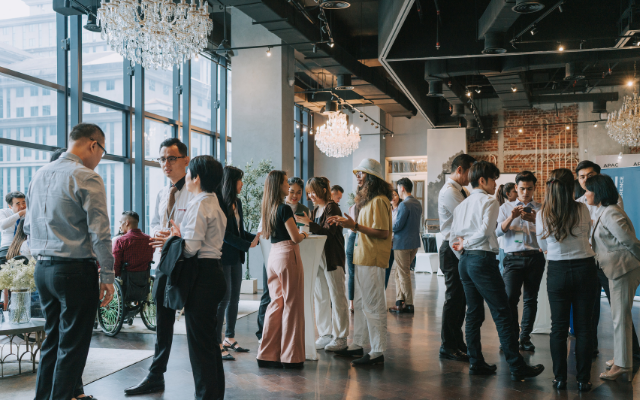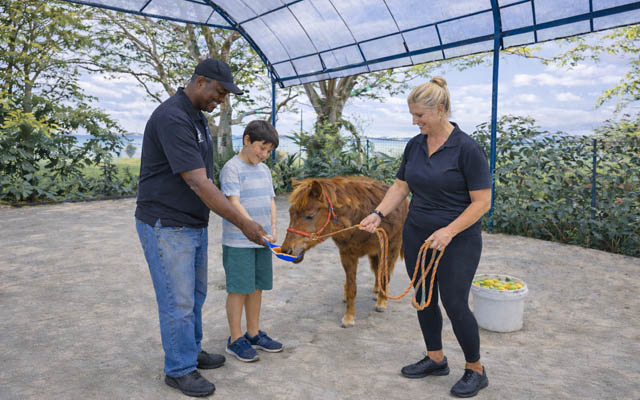Ho Kwon Ping, executive chairman of Banyan Group, talks about developing Thailand’s south, the launch of the Banyan Living platform, and how social sustainability factors into the group’s development trajectory for Phuket, just as the organisation turns 30

Why did Banyan Group expand into the lesser-known beach destination of Nakhon Si Thammarat with the Banyan Tree Beachfront Residences Sichon?
This is part of our attempt to support the Thai government’s call (for responsible tourism operators) to promote tourism in other beautiful places in Thailand.
Nakhon Si Thammarat and Surat Thani are just off the coast of Samui. The water is not as great as in Phuket, but they’re very nice places.
Nakhon Si Thammarat is just a stone’s throw away from Phuket and Samui. You can drive from Phuket to Krabi, and on to Nakhon Si Thammarat, then take a ferry to Samui. That whole part of southern Thailand has huge potential, and we would like to contribute to developing that.
Previously you discussed resort hubs forming the nucleus for broader development. Similar to Honolulu, you said that Phuket could also be a hub. How do you view Phuket now?
Even more so now. A recent report grouped Phuket with Miami and Dubai in the realm of branded residences. That’s saying a lot because Miami is so big and Dubai is so big. For Phuket to be mentioned in the same way indicates that Phuket is really coming of age.
Does the launch of your first branded residences in Sichon align well with your overall goals?
The timing is great because it gives us an opportunity to announce the launch of Banyan Living, a new platform for marketing and managing branded residences.
We’re not very large in terms of how many hotels we own, but in branded residences, we rank very highly. In a recent survey, we came in fifth globally after Marriott and IHG, which is significant when compared to our size.
Phuket as a city now ranks third in the world for branded residences. We are very big in Phuket and we have a lot of products, which we are now consolidating on one platform called Banyan Living. We have vacation ownership under Laguna Vacation Club; the Banyan Tree Private Collection, which is a sort of vacation membership club; and Sanctuary Club, which is an exchange programme for all property owners.
How do you see branded residences growing into tourism?
Real estate, which is generally ownership of an asset, has nothing to do with hospitality. Then you’ve got hospitality, which is purely tourism, hotel rooms and so on. They’ve been existing separately before.
Branded residences are where the two overlap. That’s a phenomenon stemming from a number of factors – Covid and growth of technology with the Internet and working from home. That’s one data point.
Another data point is people wanting a second home as a safe haven. Phuket is a safe haven, because everyone sees that Thailand is welcoming. It’s safe here as long as you abide by the rules; the food and weather are great. So, Thailand has come up in the world as a very popular place for branded residence.
Branded residence owners are generally not living there full-time. Even the super rich will figure, why waste it and not let it out? I may not get a fantastic return, but if I let it out when I’m not there, it can probably pay for all the expenses and give me a little decent return.
Banyan Living is a platform where now, if you own a unit in Sichon, not only do you get some revenue, but you can also visit many of the other properties that we have in the world.
It’s a big thing now to have branded residences and be able to participate in the (exchange of room credits) as part of our membership programme. That’s what Banyan Living is all about, and we are leaders in this field, given our size.
How does Phuket’s development trajectory over the past three decades as a resort destination compare to other popular beach destinations around the world?
We started in Phuket in 1985, when we first built the Dusit Laguna Resort. At the time, it was still zero – nothing at all.
Everything has an inflection point where it takes off and becomes something qualitatively different. Before Covid, Phuket was going along as a nice destination. After Covid, because of this need for safe havens by the Chinese and the Russians, and people looking for better weather to stay during winters, infrastructure began to develop.
We have about 4,000 rai of land in Phuket, which is approximately four square kilometers. We’re the largest developer and landowner in Phuket. Our property sales this year will be 4.5 times more than pre-Covid. Growth has been amazing. Because we have so much land, we can continue to grow.
You are developing a new lifestyle district in Phuket. Is there a market for it now?
Laguna Phuket is the name for the whole project, which is about four square kilometers. Laguna Lakelands is being developed as a big residential project of about one square kilometer in size. It may not be the biggest project in Thailand by population because you cannot go up to 50 storeys high.
But in terms of land area, it’s likely one of the biggest in Thailand. It will also be the first project where we bring in social sustainability. That’s very different from environmental sustainability.
Phuket has no park of any kind whatsoever, because it grew from being a small tin mining city. People who live in Phuket – whether Thais or foreigners – have no place to go.
Now, we are going to develop 15 kilometers of walking trails and bicycle trails, botanic gardens, and a Laguna Phuket community club for the family. Currently, if you are living in Phuket with children, and you want the kids to take some enrichment courses, your husband wants to practice golfing, and you want to do Pilates, there is no place for that. Laguna Lakelands aims to fill that gap.
Why is it important that you do this?
There’s been a big focus on sustainable tourism development (but) sustainability is not just about the environment. It is about different communities coexisting with each other.
We want to make sure that what we are building in one square kilometer will benefit local people, because we are the biggest developer in Phuket by far. If we don’t lead the way, the divide will only grow.
For a society where people are so tolerant and welcoming, as a developer we have a responsibility to enhance that cooperation.


















